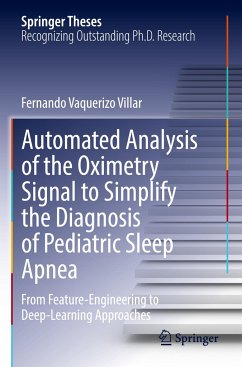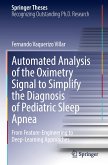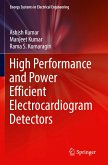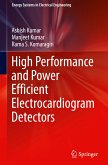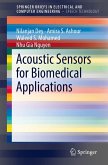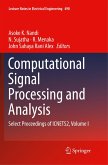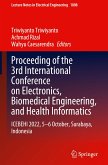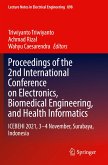This book describes the application of novel signal processing algorithms to improve the diagnostic capability of the blood oxygen saturation signal (SpO2) from nocturnal oximetry in the simplification of pediatric obstructive sleep apnea (OSA) diagnosis. For this purpose, 3196 SpO2 recordings from three different databases were analyzed using feature-engineering and deep-learning methodologies. Particularly, three novel feature extraction algorithms (bispectrum, wavelet, and detrended fluctuation analysis), as well as a novel deep-learning architecture based on convolutional neural networks are proposed. The proposed feature-engineering and deep-learning models outperformed conventional features from the oximetry signal, as well as state-of-the-art approaches. On the one hand, this book shows that bispectrum, wavelet, and detrended fluctuation analysis can be used to characterize changes in the SpO2 signal caused by apneic events in pediatric subjects. On the other hand, it demonstrates that deep-learning algorithms can learn complex features from oximetry dynamics that allow to enhance the diagnostic capability of nocturnal oximetry in the context of childhood OSA. All in all, this book offers a comprehensive and timely guide to the use of signal processing and AI methods in the diagnosis of pediatric OSA, including novel methodological insights concerning the automated analysis of the oximetry signal. It also discusses some open questions for future research.
Bitte wählen Sie Ihr Anliegen aus.
Rechnungen
Retourenschein anfordern
Bestellstatus
Storno

